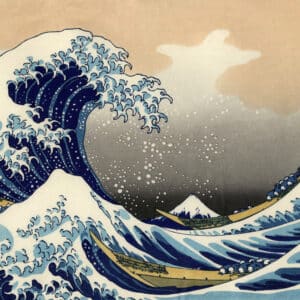The Japanese “kouza” (口座 or account) system refers to a traditional method of doing business in Japan, particularly in the retail sector, where retailers only purchase from suppliers who have been screened and approved in advance. In other words, suppliers such as manufacturers and distributors who have an existing “account” with the retailer.
Key features of the kouza system include:
1. Exclusive Territories: Retailers are often granted exclusive territories by their suppliers. This means that a particular retailer is the only one in a certain area authorized to sell a specific manufacturer’s products.
2. Consignment Sales: Products are often provided on a consignment basis. Retailers pay for the goods only after they have been sold to the end consumers. This reduces the risk and inventory cost for the retailers.
3. Returns Policy: Retailers are often allowed to return unsold goods to the suppliers. This further reduces the risk for retailers and is a significant aspect of the kouza system.
4. Long-term Relationships: The system is based on long-term, stable relationships between suppliers and retailers. These relationships are often more personal in nature and can involve a high level of trust and mutual understanding.
5. Credit Terms: Suppliers provide goods on credit, and the payment terms can be quite flexible, depending on the relationship between the retailer and the supplier.
6. Information Sharing: There is a significant amount of information sharing between the supplier and retailer regarding market trends, consumer preferences, and sales data.
The kouza system has been a fundamental part of the Japanese retail landscape for centuries, although its prevalence has been decreasing with the rise of more modern retail practices, including direct sales, online retailing, and the entry of foreign competitors into the Japanese market. This system has been credited with creating a stable retail business environment but criticized for hindering competition and innovation and blocking foreign competition.
So what’s the lesson for non-Japanese companies that want to sell to retailers in Japan?
First, recognize that this system is a fundamental characteristic of the Japanese retail environment and isn’t going to disappear anytime soon.
Second, be sure to ask potential distributors in Japan which retailers they are already doing business with.
In our experience, whether or not they have a relationship with the right retail partners is a key factor determining long-term success for a new addition to their portfolio.

We Can Connect You With Distributors, Importers or Agents In Japan
We’ve connected 400+ companies with the right importers, agents & distributors in Japan using our proven 4-step FAST Formula™.
Companies selling everything from highly specialized B2B, medical, industrial, technical, and scientific products… to all types of consumer goods. Click here to see our track record
So if your products are right for the Japanese market, there’s a very good chance we can help you connect with Japanese sales partners who speak English… know your industry… and have a strong track record of selling products like yours.
Click on the button below to learn more.
